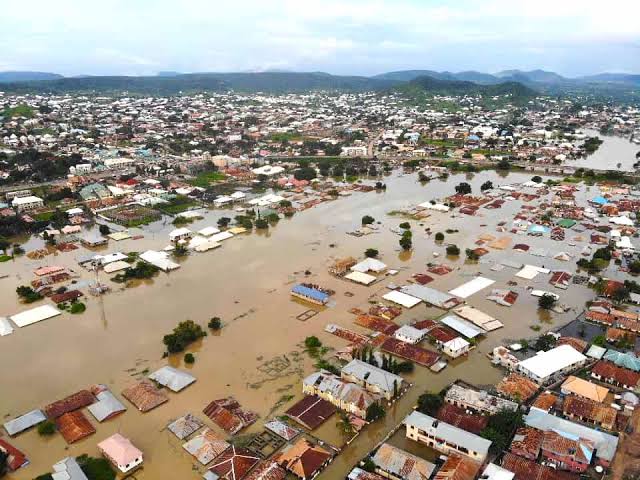The National Emergency Management Agency (NEMA) has dispatched officials to 15 states identified as being at high risk of serious flooding this rainy season. The agency said its personnel have been deployed to raise awareness in vulnerable communities and to prepare residents for emergency actions that could save lives.
According to Manzo Ezekiel, the agency’s Head of Press, the selected states include Kogi, Imo, Enugu, Adamawa, Taraba, Borno, Zamfara, Katsina, and the Federal Capital Territory. These areas have shown signs of vulnerability either due to location, previous flooding history, or ongoing development issues such as poor drainage and construction on flood plains.
Ezekiel noted that many of the victims of the recent Mokwa disaster in Niger State had settled in deep gullies, unaware of how vulnerable they were to heavy rainfall. On May 23, over 200 people were feared dead, while hundreds went missing after a powerful flood swept through Mokwa town. Emergency teams are still recovering bodies.
He explained that although forecasts had warned about flooding risks in the state, the intensity of the flood caught many off guard. “Although Mokwa was identified as one of the local government areas that were at risk of being flooded, the magnitude at which it occurred was unprecedented,” Ezekiel said.
He also noted that NEMA teams are engaging communities directly, giving first-aid training, distributing emergency kits, and providing information about evacuation routes and early warnings. “We are not just passing messages; we are listening to people, getting feedback and showing them how to respond,” he said.
The disaster in Mokwa has once again drawn attention to Nigeria’s vulnerability to floods, especially during the rainy season that runs from April to October. The town, located in Niger State—a region that hosts major dams like Kainji, Jebba, and Shiroro—has seen repeated flooding incidents over the years.
However, Minister of Water Resources and Sanitation, Joseph Utsev, has ruled out dam releases as the cause of the Mokwa flood. “The flood in Mokwa town was primarily caused by heavy rainfall due to extreme weather conditions occasioned by climate change,” he said. He added that unregulated construction and blocked waterways worsened the situation.
The Federal Government said it is working closely with state governments and emergency services to reduce the impact of such disasters. NEMA’s Director-General, Zubaida Umar, visited Mokwa less than 24 hours after the disaster to oversee the response and support efforts.
As of June 3, 160 confirmed deaths had been recorded, according to the Niger State Emergency Management Agency (NSEMA). Officials noted that among the victims were two children buried under tree debris.










